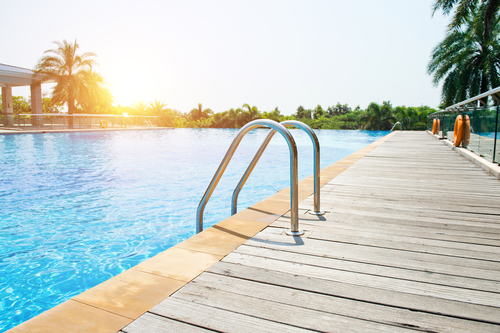Dry Drowning Explained

With the weather warming up and summer just around the corner, many families are opening the pool or planning trips to the ocean, lake, or local waterpark. There is nothing better than going for a swim and soaking up the sun with your kids.
But as a parent, you know that a great summer day can quickly turn sour in the blink of an eye. Accidents happen all the time, especially with children and especially around water.
One thing parents should be sure to keep an eye out for is something called “dry drowning.”
According to the American Osteopathic Association (AOA), dry drowning happens after you inhale water through your nose or mouth, spurring a spasm and blocking your airway. This ends up preventing proper breathing.
Symptoms like trouble breathing, coughing, chest pain or vomiting often occur soon after the water is swallowed. They are a sure sign that you should seek medical attention for your child.
Dry Drowning vs. Secondary Drowning
Many people use dry drowning and secondary drowning interchangeably, but in reality, they are different conditions. According to the AOA, secondary drowning, which can also be called delayed drowning, is when the water inhaled makes its way to your lungs, causing inflammation or swelling and impairs breathing over time.
Symptoms of secondary drowning include coughing, trouble breathing, sleepiness or lack of energy, irritability, vomiting and/or chest pain. Unlike dry drowning, these symptoms might not show until hours, or even days, after the incident. Again, it is paramount that you seek medical attention once these symptoms appear.
Preventing dry or secondary drowning can be done in a couple of ways. One simple way is to always be alert and attentive to your children if they are playing in water.
In an effort to help them learn proper water safety, getting them swim lessons early on can also be helpful. Finally, making sure they never swim alone and only swim when lifeguards are around can go a long way in keeping them safe.
PA Attorneys Ready To Assist You
Unfortunately, accidents can happen. Maybe a lifeguard failed to do their job and your child ended up suffering an injury or dying because of dry drowning. Or maybe a doctor misdiagnosed the symptoms, leaving your child to suffer from secondary drowning.
Regardless of your situation, the personal injury and medical malpractice attorneys at the Marrone Law Firm, LLC in Pennsylvania can help regardless of the state in which you live. With over 20 years of experience, they know what it takes to get you compensated for your pain and suffering. They handle all child-related death case with care and with your best interests at heart.
Call them today at 866-732-6700 to set up a free initial consultation and discuss your legal options.
The articles on this blog are for informative purposes only and are no substitute for legal advice or an attorney-client relationship. If you are seeking legal advice, please contact our law firm directly.